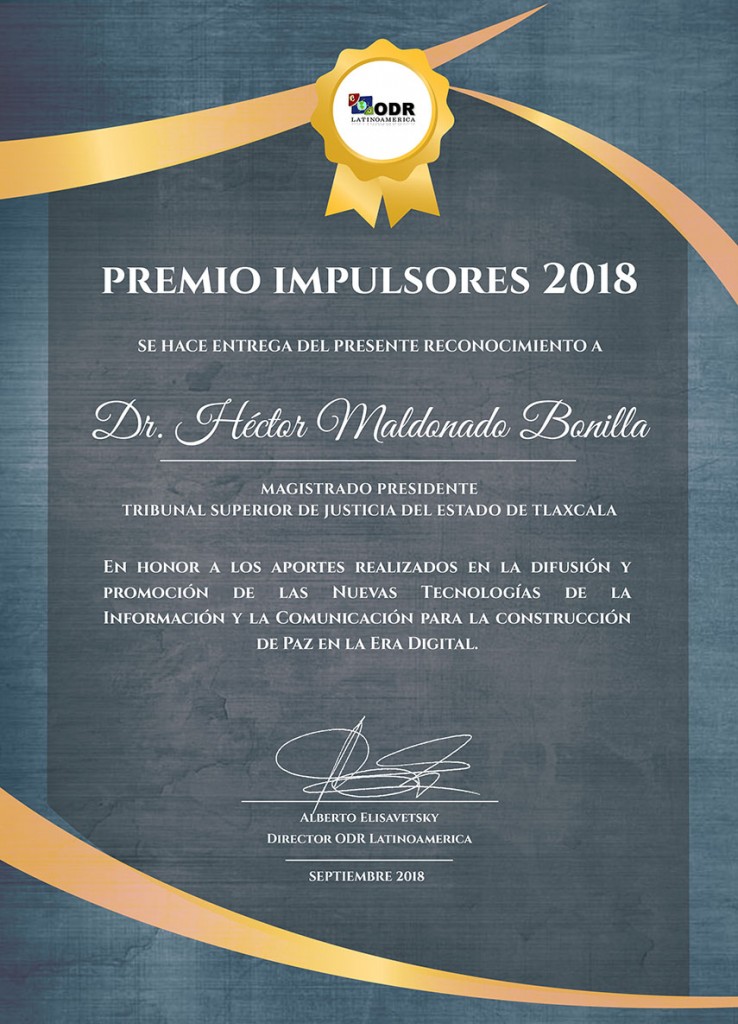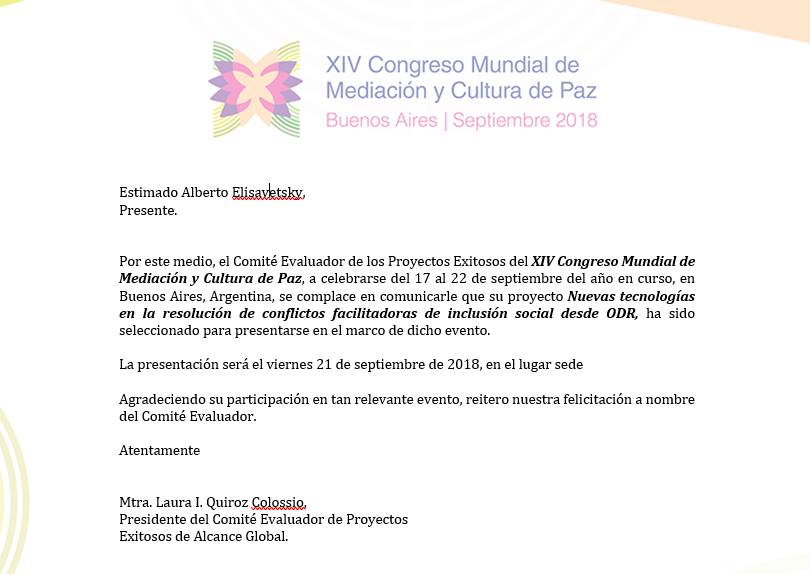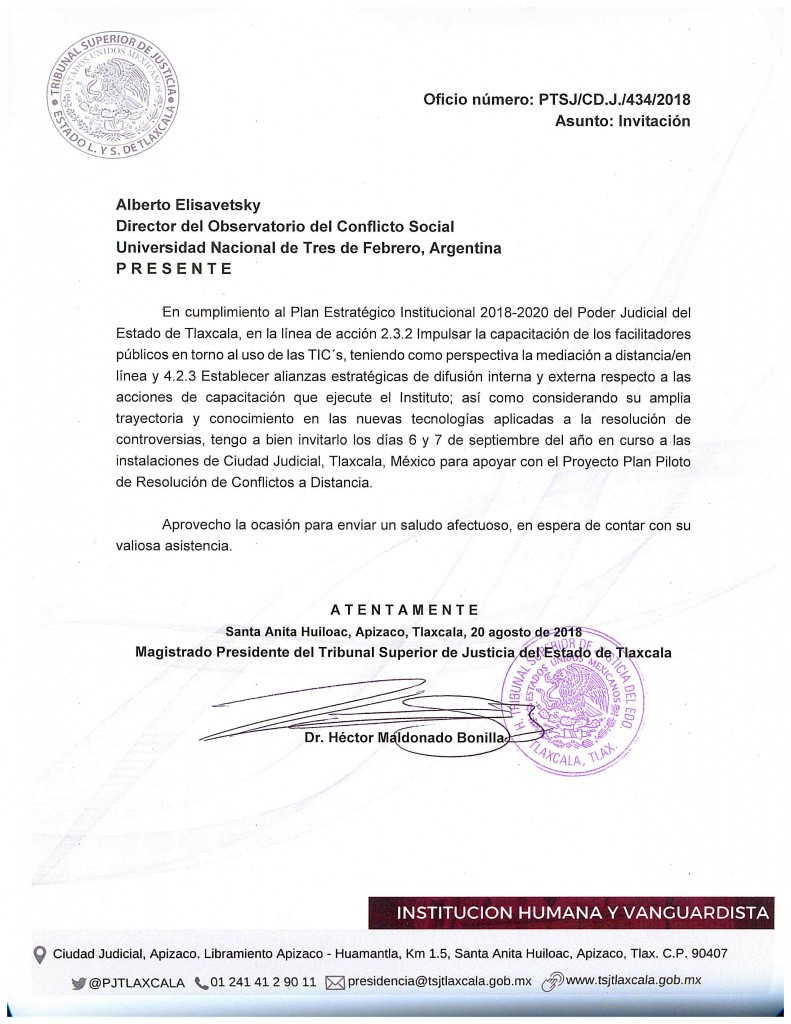from Graham Ross:
Following my work, together with my colleague Fellow, Professor Pablo Cortes, as a member of the ODR Advisory Group to the Civil Justice Council (the public body, sponsored by the UK Ministry of Justice, responsible for overseeing and co-ordinating the modernisation of the civil justice system in England and Wales) whose recommendations led to the creation of the Online Civil Money court project in England and Wales, I was later invited by the CJC to join a 6 person Working Party on ADR. The focus was on what steps could be taken to increase the use of ADR within the UK’s justice system.
Our Final Report (available here) was issued on the 4th December 2018. Apart from in general, I contributed some specific recommendations on both ODR and the EU’s consumer ADR/ODR law with relevant extracts as follows:
“3.16 Apart from the online dispute resolution systems which are being established within the Court system as part of Court modernisation and the online solutions court there are a number of online dispute resolution systems available privately. Some of these effectively serve as adjuncts or frameworks for established ADR techniques like mediation. But some modern systems embody more artificial intelligence (“AI”) and their programmes may contribute creative solutions to the resolution of the problem or use systems such as blind bidding. An example is the iCan Smartsettle system. This is a comparatively new but rapidly developing area. We discuss elsewhere the need for standards to be set before stakeholders begin to trust online dispute resolution provided by private providers as an acceptable form of ADR to be encouraged in the context of court proceedings. It seems inescapable that given the wide acceptance of online processes and services in our social and business lives dispute resolution is bound to develop in this direction.
“4.16.Online dispute resolution may well enjoy greater popularity,even if provided privately,once people get used to the ODR techniques being used in the online court. There is at present, it is thought, a great deal of unfamiliarity and it is an area which needs standards to be set and in particular reassurance to be given to potential litigants about the security and confidentiality of their communications. “
“5.6…….As we said in out Interim Report, “We can see that if ODR techniques become woven into the design of the Court system then the debate whether or not to compel ADR may simply become obsolete” (IR 2.7) In general the existence of the Online Court project presents the opportunity for expansion of its use of ODR techniques especially those that go beyond simply enabling communications to take place online and embrace those systems that exploit Artificial Intelligence to empower litigants to reach settlement more easily. This should enable it to handle large increases in case load.”
5.12 More important are the Consumer ADR Regulations and the Online ADR Regulations, the which will be preserved as part of UK law. Anything involving EU Institutions is more difficult. Agreement is likely to need to be reached with the EU to permit the EU’s ODR Portal to continue to operate by referring to UK consumers to UK approved ADR providers as at present. Failing this an independent UK Portal will need to be created.
7.10(4) Private initiatives in relation to ODR should be applauded and promoted and, we hope, accepted by the Courts once appropriate standards are in place;
7.21 We referred in our interim report to the need for some standards to be set for the seemingly huge variety of techniques available within ODR if it is to gain wider recognition as a privately available ADR service rather than just an aspect of the digital court. We think the respects in which standards may be required are most obviously confidentiality and security. Where there is an evaluative or advisory component in the online inter‐action then clearly issues of accuracy and quality could arise. We wonder whether it will be advisable to offer the public a link to a private ODR provider (on the Alternatives website) until standards are established and the provider commits to follow them. It is recognised that the newly formed International Council for Online Dispute Resolution (www.icodr.org) is developing global standards for ODR and already has a set of principles on its website. As the ICODR comprises the body of universally acknowledged leading experts in the field, it would be unwelcome for those less knowledgeable and less experienced to seek to develop standards of their own.
8.3 The Dispute Resolution techniques most likely to be deployed at the outset of the dispute are consumer conciliations and ombudsman services provided under the schemes that were reviewed in our interim report. We remain of the view that careful consideration needs to be given to the scope of the consumer ADR Directive and to the position that, outside statutory schemes, suppliers of services in England and Wales are at present able to do no more than to cite the theoretical possibility of conciliation conducted by a particular body and are under no obligation in any given case actually to use those ADR systems even where the consumer wishes to do so.
8.4. In fact as matters stand there is evidence that even the existing requirements of the Consumer ADR and ODR Regulations are being ignored and flouted to an extraordinary extent. Steps clearly need to be taken by way of enforcement to ensure that at least that step is being taken.
9.18. Online dispute resolution in all its many forms must establish a set of standards in order to gain further acceptance.
9.19. There should be a review of the operation of the Consumer ADR Regulations to ensure that the existing rules are complied with and careful thought should be given to their further reinforcement, so as to increase the use of consumer conciliation in this area.
Read the full report here: https://www.judiciary.uk/wp-content/uploads/2018/12/CJC-ADRWG-Report-FINAL-Dec-2018.pdf




